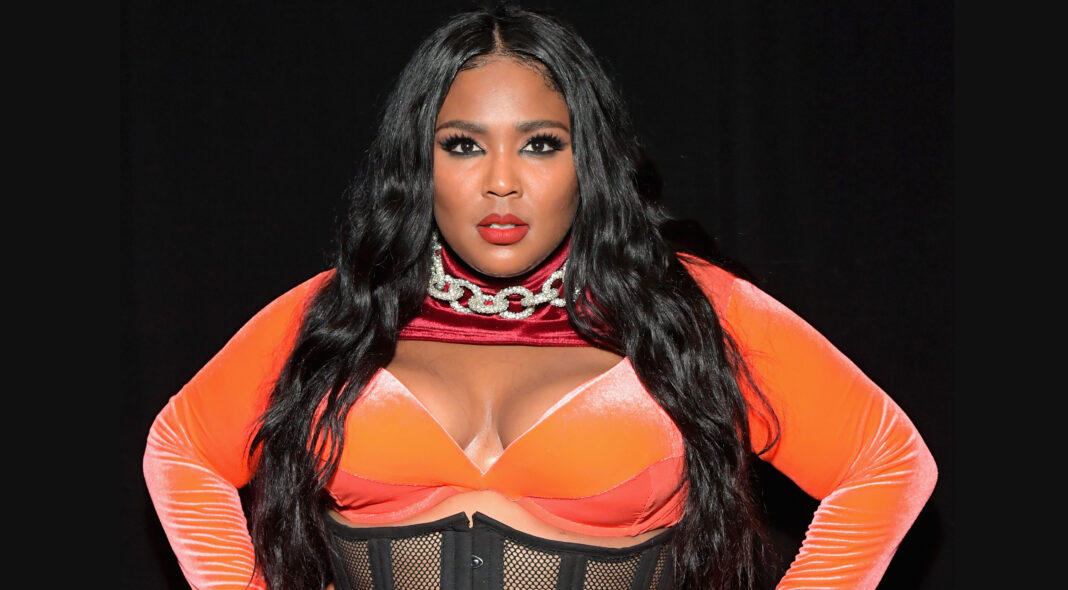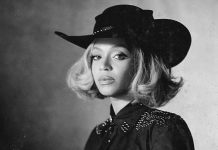Lizzo doesn’t give a fuck, except when she does. Known for her upbeat persona and impeccable, multi-faceted performance, her rise to pop-cultural omnipresence has been a true joy to watch, spreading self-love and the value of a committed work ethic wherever she goes. As a true entertainer for our times, the release of her comeback single ‘Rumors’ last Friday should have been cause for celebration; a joyous, witty, Cardi-B-featuring-kiss-off that took all the mean spirited and snarky comments and ground them beneath her heel. But instead, she ended her release week by crying on an Instagram live, broken down by the torrent of abuse — racist, sexist, sizeist —that the video had directed her way.
“Sometimes I’m like, the world just don’t love me back,” she shared. “It’s like it doesn’t matter how much positive energy you put into the world, you’re still going to have people who have something, something mean to say about you.., for the most part, it doesn’t hurt my feelings, I don’t care. I just think when I’m working this hard, my tolerance gets lower, my patience is lower. I’m more sensitive, and it gets to me.”
Artistic criticism is nothing new, but it certainly seems that Lizzo has taken an inordinate share of the catty comments that get aimed at successful female artists. A rare, visible plus-size icon, critiques of her weight have formed constant scrutiny for her entire career, firing from all sides; the faux-concern that she is promoting an unfit and unhealthy lifestyle (have you seen this woman dance while playing the flute?!), conservative media publications who scandalise over her ‘bravery’ to wear a skimpy outfit, even plus-size fans who felt ‘betrayed’ in 2020 when she posted about fitness and diet on social media, assuming that she was doing it out of shame for her body. With the mantle of ‘body positivity’ thrust upon her daring to proudly exist in her own skin, Lizzo’s body has become a battleground for people to work out their own prejudices, insecurities and curiosities, rendering her an unfair object of personal projection.
When people aren’t taking umbrage with Lizzo’s physical appearance, they seem to have a problem with her attitude. Throughout musical history, society has been sceptical of Black women who dare to project confidence, to feel themselves and sing unapologetically about their talent and sex appeal. From her alt-girl beginnings with 2014’s vibrant, characterful ‘Lizzobangers’, Lizzo has climbed her way up the ladder by believing in her own sauce, committing herself to making the music work even when she was living out of the back of her car. When she broke through in 2018-2019, some fans felt she had abandoned her roots; less rapping over diasporic beats, more glittery outfits and pop hooks. As a result, plenty accused her of selling out by pandering to the white masses; delivering neatly pink-packaged ‘girlboss feminism’ in songs like ‘Good As Hell’ and ‘Juice’ that play up to stereotypes of the finger-snapping ‘sassy’ Black woman. With the release of ‘Rumors’, some critics even went as far as to compare Lizzo to a modern-day ‘Mammy’, a propaganda caricature from the Jim Crow era of slavery who was a homely, joyfully-willing participant in the system of her own oppression.
While it is certainly true that Lizzo’s mainstream success has maybe brought a few more straight, ‘yassss-queening’ white women to her concerts, the claim that she has intentionally calculated it this way is an understandably hurtful one, not least because of the painful racial history it stirs up. It’s a long-established barb that has clearly stuck deep enough for her to address it directly in ‘Rumors’ first line: “They don’t know I do it for the culture, goddamn.” It is deemed insincere for Black women to make art that is accessible to the mainstream, but if they don’t, they get labelled as ‘hood’ only, a ceiling placed upon their potential for growth. For an ambitious, talented musician, it’s an impossible dichotomy, and yet from Beyoncé to Megan Thee Stallion, Normani to Lizzo, we have seen time and time again that there is a long-standing belief that Black women must simply stay and shrug off any meanness or abject racism that is aimed their way, knowing their place as the wide-smiling, eager entertainer.
“It comes down to the fact that we as a society have over-politicised Lizzo to the extremes and it’s an unnatural burden to carry.” says Natty Kasambala, a pop-culture journalist and the author of “Live The Lizzo Way”. “She’s become an ideology beyond her own existence as a real-life human being. While other people get to make the music they want to make, she’s upheld as this infallible symbol of Blackness, of Black womanhood, of fatness and body-positivity and so much more. We’ve projected so much responsibility onto her that when audiences feel that she falls short of whatever their extremely restrictive definitions of these criteria are, they feel a toxic need to bring her back down to Earth. When in reality, she’s just one person making music, living life and trying to be happy while she does it, just like anyone else. She should be free to do so without abuse and character assassination.”
While ‘Rumors’ proves that Lizzo is more than capable of clapping back at the trolls with both humour and panache, there is no denying that it must be exhausting to be in her shoes. Nobody is capable of loving themselves always, to twirl consistently on the haters without occasionally feeling down or doubtful about where they’re at. By showing her vulnerabilities on the ‘gram, Lizzo is demonstrating that she isn’t a blow-up celebrity doll to be plugged in and deflated at our amusement; she is a multi-dimensional person with real feelings, a performer who is confident but still has a breaking point where it all becomes too much. This should hardly be a revelation, and yet still we find ourselves forgetting that fandom doesn’t give us an instant right to pass comment on people whose lives and motives we will never truly know. She’s crying because she loves what she’s built, but is still made to feel like it is never enough.
“We totally rely on confident visible Black women to be everything to everyone, and rarely allow them space to be human or to even put their own desires first,” says Natty. “I think Lizzo showcasing her feelings is her way of trying to shatter that mirage and demand basic empathy and respect, which is really not that much to ask for. Even in a life as conventionally successful as hers, she shows that both her own insecurities and the ones projected onto her can have real-life consequences.”
Personal identification – even when it’s one-sided – can be one of the best, most exciting parts of being a fan. For so many, Lizzo’s presence is a beacon of the confidence we can hope to have in ourselves; our brown skin, our bigger bodies, our band-geek-turned-international-success-making. But as we gather our own inspiration and enjoyment from those we admire, we constantly need to remind ourselves that it is not people like Lizzo’s job to hold the definitive map to life. Musical criticisms or ‘I preferred their last album’ preferences are one thing, but actively seeking out Lizzo to tell her that you think she looks awful or has ‘abandoned her Blackness’ is no different to everyday bullying, completely removed from what being a music fan is about.
While critics are spewing distaste over Lizzo’s butt-baring outfits and ‘attention seeking’ tears, there are hoards of other celebrities actively showing their metaphorical ass for offenses that are notably worse than anything Lizzo could be accused of. If we are to take advice from ‘Rumors’, the central lyric is probably thus; “spending all your time tryna break a woman down/ realer shit is goin’ on, baby, take a look around”. If this is a new era for her music, maybe it can be a new era for the rest of us too, a chance to put these tired, catty comments to bed. For the love of all that is great about music, can we all just agree to let this woman do her thing?
READ MORE: The de-platforming of DaBaby marks an important opportunity for anti-homphobia in rap







